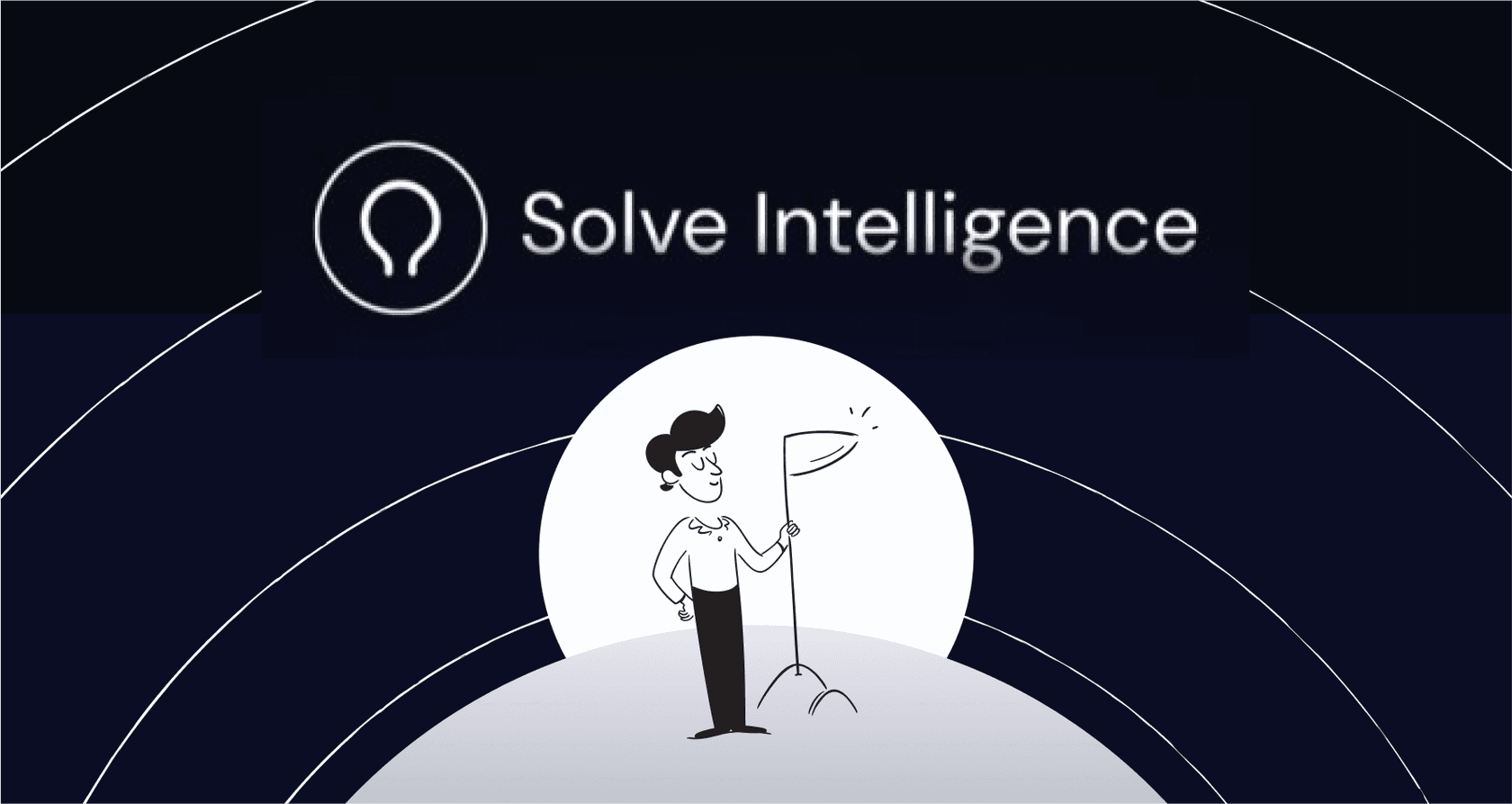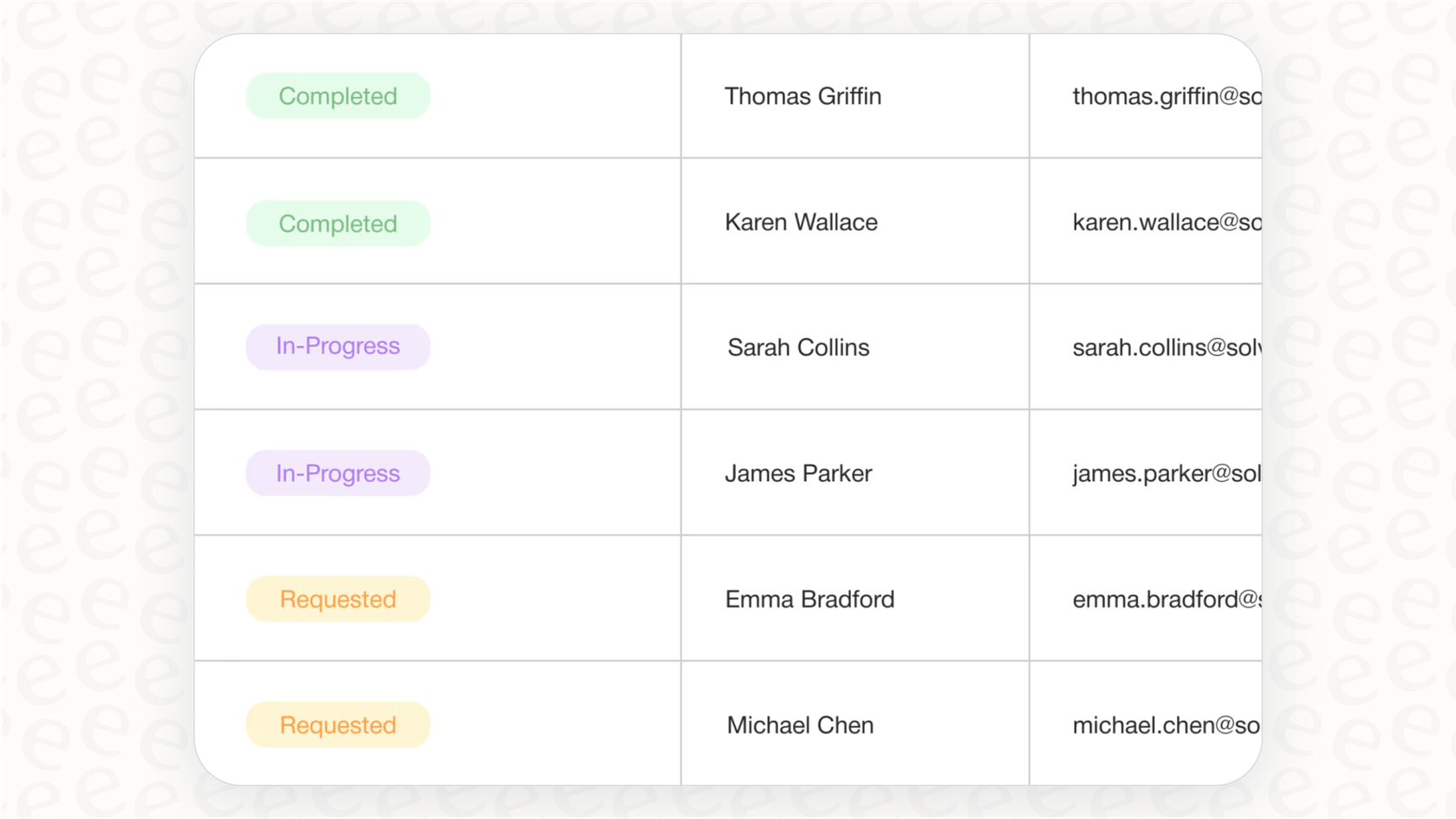
If you're in the legal or tech space, the name Solve Intelligence has probably popped up on your radar. It's an AI platform that's been getting a lot of attention in legal tech because it's focused squarely on the world of intellectual property (IP). The whole idea is to take the notoriously slow and expensive patent process and speed it up with generative AI.
But what does it actually do? And more importantly, is it the right tool for your company?
Let's break down what Solve Intelligence is all about, from its key features and target audience to its pricing. We'll also get real about its limitations, so you can decide if a super-specialized tool like this is what you need, or if a more versatile AI makes more sense.
What is Solve Intelligence?
In simple terms, Solve Intelligence is an AI-powered document editor that works right in your browser. It's built specifically for patent attorneys, inventors, and corporate IP departments to help them with their day-to-day grind.
The company was started by a group of AI researchers and has some serious backing from big players like Y Combinator, Microsoft’s M12 fund, and Thomson Reuters. They're focused on solving one very particular and pricey headache: the patent lifecycle. Anyone who's been through it knows that getting a patent is a slow, manual slog that can take years and cost a staggering $60,000 on average worldwide.
Solve Intelligence calls itself an "AI copilot," which is a pretty good description. It’s meant to help legal pros through the entire patent process, from jotting down the initial idea to drafting the application and dealing with all the inevitable back-and-forth with patent offices.
Key features of Solve Intelligence
Solve Intelligence is more like a toolkit than a single tool, with features designed to handle the whole patent workflow. Here’s a look at what it can do.
Invention harvesting and management
First things first, you need a solid record of an invention before you can even think about filing a patent. This feature gives companies a standard way to collect "invention disclosures" from their teams. It's basically a central hub for managing the disclosure process, with forms you can customize to make sure you get all the key details from day one.

AI patent application drafting
This is really the core of what Solve Intelligence does. It can help you draft entire patent applications or just parts of them, whether you're starting from scratch or continuing an existing patent.
A pretty cool feature here is that you can tweak the AI's writing style. You can train it to sound like a specific attorney, match a client's voice, or adapt to the legal quirks of another country. In a field where every word matters, that kind of personalization is huge. The tool is also smart enough to work with tricky inputs like technical drawings, chemical formulas, and biological sequences.

AI-powered patent prosecution
Getting a patent is rarely a straightforward affair. Patent examiners usually have questions or push back with "office actions," which require a detailed response. Solve's AI can help lawyers write these responses by digging into the examiner's points, checking for prior art, and suggesting ways to argue the case or tweak the claims. It can even pull up relevant case law to support the arguments.
Security and confidentiality
When you're dealing with this kind of sensitive legal info, security obviously has to be top-notch. Solve Intelligence is very clear that they don't use customer data to train their general AI models. The platform is locked down with strong encryption and meets standards like SOC 2, GDPR, and CCPA.
And honestly, this level of security isn't just for high-stakes legal work anymore; it's what you should expect from any modern AI tool handling your company's data. For instance, platforms like eesel AI follow the same strict security practices for everything from customer support to internal knowledge bases. Keeping your data safe should be table stakes, no matter what you're using AI for.
Who is Solve Intelligence for and how much does it cost?
Alright, so who is this actually for, and what's it going to cost you? These are two of the biggest questions when you're looking at any new software.
Target audience
Let's be clear: Solve Intelligence isn't for everyone. It's a highly specialized tool built for a very specific crowd:
-
Patent attorneys at law firms, big or small.
-
In-house IP lawyers and legal departments at big tech or life sciences companies.
-
Inventors and R&D folks who are hands-on with the patenting process.
When you see names like Siemens and the global law firm DLA Piper on their customer list, you know they're aiming for the big leagues in the enterprise and legal worlds.
Pricing
This is where things get a little mysterious. Solve Intelligence doesn't list its prices online. If you want to know how much it costs, you have to book a demo and talk to their sales team.
This tells you a few things. First, it's probably geared toward enterprise clients with big, custom budgets, not small teams or solo users. Second, you're in for a longer sales process since you can't just sign up and give it a spin. And third, it makes it tough to compare costs with other tools without jumping on a sales call first.
This sales model is pretty standard for niche software, but it can be a pain for teams that just want to get started quickly. It's a different world from platforms like eesel AI, where all the pricing is out in the open. With a self-serve approach, you can get powerful AI running in minutes on a flexible monthly plan, no sales call required.

Limitations of a specialized tool
No tool is perfect, and it's worth looking at the downsides of a specialized platform like this. It's not about criticizing the tool, but about being realistic about where it fits in your business.
Laser-focused on patent law
The biggest strength of Solve Intelligence is also its main drawback: it's built for patent workflows and nothing else. It’s fantastic at what it does, but that's where its usefulness stops. You can't use it to answer a customer support question, handle an IT ticket, or run a sales chatbot on your website. If your job isn't IP law, this isn't the tool for you.
Lack of integration with business tools
Solve Intelligence lives in the legal tech ecosystem, but it doesn't really talk to the other apps your business runs on. There are no connections to common help desks like Zendesk or Freshdesk, collaboration tools like Slack or Microsoft Teams, or knowledge hubs like Confluence or Notion. This means it's basically working in a bubble, cut off from where the rest of your company's information and daily work happens.

The risk of creating AI silos
When you start using different, single-purpose AI tools for every department, you can easily end up with "AI silos." Your legal team's AI has no idea what your support team is learning from customer tickets, and your support AI can't tap into the technical docs your legal team is drafting.
This setup gets messy fast. You're suddenly juggling multiple AI vendors, different security rules, and separate budgets. A better way to go is to bring all of your company's knowledge together on one secure AI platform that everyone can use.
And that's the whole idea behind eesel AI. It plugs into all your knowledge sources, whether it's help desk tickets, Confluence pages, Google Docs, or Slack messages. It then uses that shared brain to power different AI agents for different teams, all from one place.

The verdict: Is Solve Intelligence the right tool for your business?
So, what's the verdict? Is Solve Intelligence the right tool for your business?
If you're a law firm or a corporate IP department and your world is all about patents, then Solve Intelligence is a top-tier tool. It can make a notoriously painful process much smoother and save you a ton of time. For that specific job, it's one of the best options out there.
But for any other part of the business, it's just not a fit. If you need AI to help with customer service, IT support, internal questions, or sales, you'll have to look elsewhere.
A more versatile AI solution for your entire business
If you're looking for a more flexible AI that can help out multiple teams across your company, something like eesel AI might be a better fit. It’s built to act as a central brain for your entire business.
Here’s a quick look at why that approach works well:
-
Get started in minutes. eesel AI is fully self-serve, so you can set it up on your own without having to talk to a salesperson.
-
Clear, upfront pricing. You know exactly what you're paying. The plans are flexible, and there are no surprise charges or required annual contracts.
-
Connect all your knowledge. It plugs into over 100 common business tools like Zendesk, Confluence, and Slack, so you can finally break down those information silos.
-
One platform for many jobs. You can use it to create AI agents for customer service, IT support, internal Q&A, and more, all from one spot.
Want to see how a single AI platform could work for your whole business? You can get started with eesel AI for free or book a quick demo with our team.
Frequently asked questions
Solve Intelligence is an AI-powered platform designed to assist patent attorneys, inventors, and corporate IP departments throughout the entire patent lifecycle. It helps with invention harvesting, drafting patent applications, and responding to office actions during patent prosecution.
Solve Intelligence is specifically built for patent attorneys at law firms, in-house IP lawyers at large tech or life sciences companies, and R&D professionals involved in patenting. It's a highly specialized tool for enterprise and legal clients.
Solve Intelligence prioritizes security, stating that customer data is never used to train its general AI models. The platform uses strong encryption and complies with strict standards like SOC 2, GDPR, and CCPA to protect sensitive legal information.
The platform is primarily geared towards enterprise clients and larger legal departments. Its pricing is not listed publicly and requires a sales demo, suggesting it's not designed for small teams or solo users seeking quick, self-serve access.
Its primary limitation is its narrow focus; it's exclusively for patent law and cannot handle other business functions like customer support or IT. It also lacks integration with most general business tools, potentially leading to AI silos within a company.
Solve Intelligence does not publish its pricing online. To get a quote, interested organizations need to book a demo and discuss their specific needs with the company's sales team.
Share this post

Article by
Kenneth Pangan
Writer and marketer for over ten years, Kenneth Pangan splits his time between history, politics, and art with plenty of interruptions from his dogs demanding attention.







